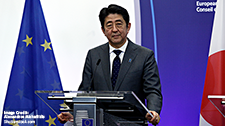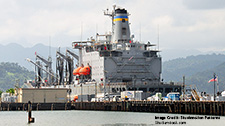How does BRICS challenge the prevailing international order?

Jagannath Panda
BRICS as a grouping of emerging economies that represent more than 40% of the world’s population by its very existence challenges economic and political governance systems led by Western nations. As the existing order lacks diverse representation, BRICS serves as an alternative economic and governance platform that seeks to create momentum toward a more equitable multipolar order.
Yet, this powerful political symbolism has not translated into achievements commensurate with the group’s ambitions. Though establishing a multilateral development financial institution (namely the New Development Bank (NDB)), coalescing the emerging world into a distinct political identity, and looking to develop alternative ways of economic cooperation are certainly laudable results.
As the battle lines between the US, its allies and partners, and the PRC/Russia have hardened as a result of Putin’s war of aggression against Ukraine, there has been increasing interest from outsiders wanting to join the PRC-dominated Shanghai Cooperation Organisation (SCO) and BRICS. When more than 40 countries express interest in joining a forum like BRICS, the world needs to take notice. Worryingly, however, in these forums, due to Russia’s current pariah status, the PRC’s clout has grown. Yet internal dissonance, especially due to the PRC’s clear aim of expanding its geopolitical influence in the non-Western world and India’s rejection of a PRC-dominated BRICS, will make expansion difficult – especially the indiscriminate kind.
Nonetheless, the proposed expansion of BRICS will not lose its shine just yet. Firstly, this is because the geo-economic might of a well-thought-out expansion would be significant, even as plans to create a fairer monetary system may not be feasible right now. Secondly, the political implications of BRICS as a multipolar, better-represented, consensus-based forum cannot be cast aside easily.
This expert’s take on BRICS is published in a special compendium at the Council on Geostrategy, London.
Related Publications
-
Report of the Webinar on China’s Himalayan Hustle – Part II: Will Eco-Dominance Be China’s New War Front?
This report is an outcome of the webinar titled “China’s Himalayan Hustle – Part II: Will Eco-Dominance Be China’s New War” held on June 18, 2024. Dr. Jagannath Panda moderated […]
-
Strong Europe-Japan Relations are a Legacy of Shinzo Abe
Abe was a firm proponent of strengthening a free, open and rules-based Indo-Pacific. Not only was he steering Japan away from total dependence on the U.S. for its security, but […]
-
Convergence in Vietnam, EU Interests a Harbinger of Indo-Pacific Order?
In March and April, Vietnamese Foreign Minister Bui Thanh Son’s nearly back-to-back visits to the U.S. and China highlighted Vietnam’s increasing penchant for delicate diplomacy with major powers amid the […]
-
South Korea-India Ties: Between Bilateralism, Minilateralism, and Multilateralism
In the context of the Indo-Pacific construct, the expanding gaps in global governance, the rise in minilateralism, the need to reinvigorate regional and global multilateralism, and the imperative to strengthen […]
-
India-Japan-Philippines: A Strategic Maritime Trilateral or More?
Regional states like India, Japan, and the Philippines have been seeking cooperative solutions with other middle powers that can both counter the Chinese influence and fulfill other economic as well […]




